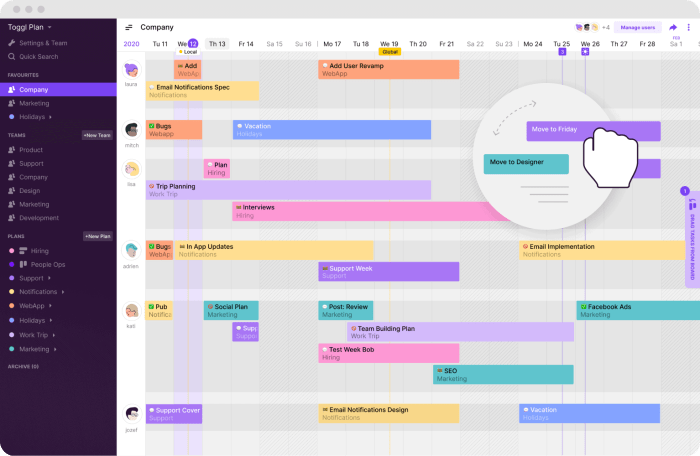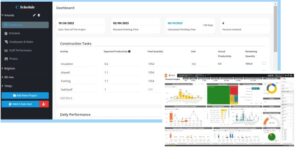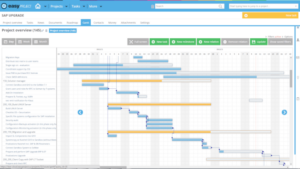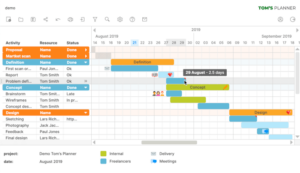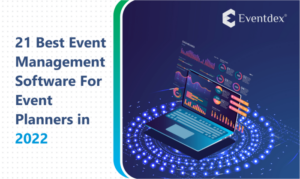Best planner apps have become our digital lifelines, helping us conquer chaos and master our schedules. These powerful tools are no longer just for the hyper-organized; they’re for everyone who wants to get more done, stay on top of deadlines, and reclaim control of their time.
From simple task lists to intricate time-blocking strategies, there’s a planner app out there for every need and personality.
This guide will explore the evolution of digital planning, highlight the key benefits of using planner apps, and dive deep into the features that make them so effective. We’ll also compare top-rated apps across various categories, revealing their strengths and weaknesses to help you find the perfect fit for your unique workflow.
Introduction to Planner Apps
The way we plan and manage our lives has drastically changed with the advent of digital tools. From simple to-do lists to sophisticated project management systems, planner apps have revolutionized how we organize our time, tasks, and goals. This evolution has been driven by the increasing demand for efficient and accessible tools that can adapt to our increasingly complex lives.Planner apps offer numerous benefits that traditional paper planners cannot match.
These benefits include:
Advantages of Using Planner Apps, Best planner apps
Planner apps offer a multitude of advantages that make them an attractive alternative to traditional paper planners. Here are some of the key benefits:
- Accessibility:Planner apps are readily accessible on your smartphone, tablet, or computer, allowing you to access your schedule and tasks from anywhere at any time. This eliminates the need to carry a physical planner around and ensures you never miss a deadline.
- Flexibility:Planner apps offer a high degree of flexibility in terms of customization. You can adjust the layout, colors, and features to match your personal preferences and workflow. This personalized approach ensures that the app adapts to your unique needs, making it a more efficient and enjoyable planning tool.
- Integration:Many planner apps integrate with other productivity tools and platforms, such as email, calendar, and task management apps. This seamless integration streamlines your workflow by allowing you to manage all your tasks and appointments from a single platform.
- Reminders and Notifications:Planner apps provide timely reminders and notifications, ensuring you never miss an important event or deadline. This eliminates the need to constantly check your planner manually and reduces the risk of forgetting important commitments.
- Collaboration:Some planner apps allow for collaboration with others, making them ideal for teams or families. This feature enables shared calendars, task lists, and notes, facilitating seamless communication and coordination.
- Data Analysis and Insights:Advanced planner apps can analyze your data to provide insights into your productivity and time management habits. This data can be used to identify areas for improvement and optimize your workflow.
Common Features of Planner Apps
Most planner apps share a common set of features that provide the core functionality for planning and organizing your tasks and appointments. These features include:
- Calendar:A calendar feature allows you to view your schedule, create events, and set reminders. Most apps offer multiple views, such as daily, weekly, and monthly, to accommodate different planning preferences.
- To-Do Lists:To-do lists enable you to create and manage tasks, prioritize them, and set deadlines. Many apps allow you to categorize tasks, add notes, and assign them to specific projects.
- Note Taking:A note-taking feature allows you to jot down ideas, brainstorm, and capture important information. This feature can be integrated with other features, such as tasks and events, to create a comprehensive planning system.
- Goal Setting:Many planner apps include goal-setting features that allow you to define your objectives, break them down into smaller steps, and track your progress. This feature can be helpful for staying motivated and achieving your long-term goals.
- Synchronization:Synchronization ensures that your data is updated across all your devices, allowing you to access your planner from anywhere. This feature is essential for maintaining a consistent and up-to-date view of your schedule and tasks.
Best Planner Apps for Different Needs

Planner apps have become indispensable tools for individuals and teams seeking to streamline their daily tasks, manage projects, and achieve their goals. These apps offer a wide range of features, catering to various needs and preferences. This section delves into the best planner apps categorized by their primary focus, providing a comprehensive overview of their features, pricing models, and target user groups.
Planner Apps for Productivity
Planner apps designed for productivity focus on maximizing efficiency and helping users get more done. They often feature task management, time tracking, and goal-setting capabilities. These apps are ideal for individuals and teams seeking to improve their workflow and stay organized.
- Todoist:Todoist is a popular task management app known for its intuitive interface and robust features. It allows users to create projects, assign tasks, set deadlines, and prioritize items. Todoist also integrates with other productivity tools, such as Google Calendar and Slack, making it a versatile option for individuals and teams.
Its pricing model offers a free plan with limited features and premium plans with additional functionalities.
- Asana:Asana is a project management platform that provides a collaborative workspace for teams to plan, track, and manage projects. It offers features such as task lists, project boards, timelines, and communication tools. Asana’s pricing model includes a free plan for small teams and paid plans for larger organizations.
- Trello:Trello is a visual project management tool that uses a Kanban system. It allows users to create boards, lists, and cards to organize tasks and projects. Trello is known for its simplicity and flexibility, making it suitable for individuals and teams of all sizes.
Its pricing model offers a free plan with basic features and paid plans with advanced functionalities.
Planner Apps for Scheduling
Scheduling planner apps prioritize managing appointments, events, and deadlines. They typically integrate with calendars, provide reminders, and offer features for coordinating schedules with others. These apps are ideal for individuals and teams who need to stay on top of their commitments and avoid scheduling conflicts.
Best planner apps help you organize your schedule, but what about organizing your content? That’s where editing apps come in, and Editing Apps: Transforming Content Creation can help you take your content from rough draft to polished masterpiece.
Once you’ve got your content flowing, you can go back to your planner and schedule when to share it with the world!
- Google Calendar:Google Calendar is a widely used calendar app that integrates seamlessly with other Google services, such as Gmail and Drive. It allows users to create events, set reminders, and share calendars with others. Google Calendar is free to use and offers a range of customization options.
- Outlook Calendar:Outlook Calendar is a calendar app integrated with Microsoft Office. It offers features similar to Google Calendar, including event creation, reminders, and calendar sharing. Outlook Calendar is available for free with a Microsoft account and offers additional features with a paid Office 365 subscription.
- Calendly:Calendly is a scheduling tool that simplifies the process of booking meetings and appointments. It allows users to create availability slots and share a link with others, enabling them to book time directly. Calendly is a popular choice for professionals who need to schedule meetings efficiently.
It offers a free plan with basic features and paid plans with advanced functionalities.
Planner Apps for Task Management
Task management planner apps focus on breaking down large projects into smaller, manageable tasks. They typically provide features for creating to-do lists, assigning deadlines, and tracking progress. These apps are ideal for individuals and teams who need to stay organized and ensure that all tasks are completed on time.
- TickTick:TickTick is a comprehensive task management app that offers a range of features, including task lists, subtasks, reminders, and recurring tasks. It allows users to prioritize tasks, set deadlines, and track progress. TickTick is available for free with limited features and offers a paid plan with additional functionalities.
- Things 3:Things 3 is a task management app known for its simplicity and elegance. It focuses on creating to-do lists and managing tasks in a clear and concise way. Things 3 is available for macOS and iOS devices and offers a one-time purchase price.
- Notion:Notion is a versatile workspace that combines task management, note-taking, and project management features. It allows users to create databases, notes, and tasks, making it a powerful tool for organizing and managing various aspects of work and life. Notion offers a free plan with limited features and paid plans with additional functionalities.
Top Rated Planner Apps
Choosing the right planner app can be overwhelming, given the sheer number of options available. This is where user reviews and industry recognition come in handy. By focusing on the highest-rated apps, you can ensure you’re selecting a tool that’s been tested and proven effective by a large user base.
Top-Rated Planner Apps
The following apps have consistently received high ratings from users and have been recognized for their exceptional features and functionality:
- Google Calendar: A popular choice for its seamless integration with other Google services like Gmail and Google Drive. Its intuitive interface and robust scheduling features make it a great option for individuals and teams alike.
- Todoist: Known for its task management capabilities, Todoist allows users to create detailed to-do lists, set deadlines, and prioritize tasks effectively. Its flexible project management features and collaboration tools make it ideal for teams.
- Notion: A versatile tool that combines note-taking, task management, and database features. It offers a customizable workspace and a wide range of templates for different purposes, making it suitable for personal and professional use.
- Asana: Asana is a project management platform that helps teams collaborate on tasks, track progress, and stay organized. Its visual dashboards and customizable workflows make it easy to manage projects of all sizes.
- Trello: Trello is a visual project management tool that uses boards, lists, and cards to organize tasks. Its intuitive interface and collaborative features make it a popular choice for teams of all sizes.
Choosing the Right Planner App
With so many planner apps available, choosing the right one for your needs can feel overwhelming. But, by taking the time to carefully evaluate your requirements and preferences, you can find the perfect app to help you stay organized and on track.
Evaluating Planner Apps Based on Individual Needs and Preferences
Before you dive into the world of planner apps, it’s essential to consider your individual needs and preferences. Ask yourself:
- What are my primary goals for using a planner app? (e.g., managing tasks, scheduling appointments, tracking goals, etc.)
- What features are essential for me? (e.g., calendar integration, reminders, note-taking, collaboration tools, etc.)
- What type of interface do I prefer? (e.g., minimalist, visually appealing, user-friendly, etc.)
- What is my budget for a planner app? (e.g., free, subscription-based, etc.)
Factors to Consider When Selecting a Planner App
Once you have a clear understanding of your needs, you can start evaluating planner apps based on the following factors:
Platform Compatibility
Ensure the app is compatible with your preferred devices (e.g., iOS, Android, desktop, web). Some apps offer cross-platform compatibility, allowing you to access your data from multiple devices.
Pricing
Planner apps come in various pricing models, from free to subscription-based. Consider your budget and the features offered at each price point. Some apps offer free versions with limited functionality, while others offer free trials or demo versions before you commit to a paid subscription.
User Interface
A user-friendly interface is crucial for a planner app. Look for apps with a clean layout, intuitive navigation, and easy-to-use features. Consider the app’s visual appeal and whether it aligns with your personal preferences.
Features
Different planner apps offer varying features. Consider the essential features you need, such as:
- Calendar Integration
- Task Management
- Reminders
- Note-Taking
- Goal Setting
- Collaboration Tools
- Integration with Other Apps
Security and Privacy
Ensure the app you choose has robust security measures to protect your data. Look for apps that use encryption and comply with industry standards for data privacy.
Customer Support
Having access to reliable customer support is essential, especially if you encounter any issues or have questions. Check the app’s customer support options, such as email, phone, or live chat.
Importance of Trying Out Free Trials or Demo Versions
Before committing to a paid subscription, it’s highly recommended to try out free trials or demo versions of planner apps. This allows you to experience the app’s features firsthand and ensure it meets your needs. Free trials or demo versions provide valuable insights into the app’s usability, interface, and overall functionality.
“Don’t be afraid to experiment with different planner apps until you find one that truly resonates with you.”
Wrap-Up: Best Planner Apps
In a world filled with distractions and constant demands, a well-chosen planner app can be your secret weapon for productivity and peace of mind. By harnessing the power of these digital tools, you can reclaim your time, achieve your goals, and live a more organized and fulfilling life.
Remember, the key to success lies in finding the right app that aligns with your individual needs and preferences, and then using it consistently to cultivate a habit of planning and prioritizing.

